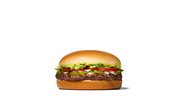News
Health advocates see progress as soft drink consumption continues decline
April 14, 2010
Americans' consumption of carbonated soft drinks continues to decline, a trend health advocates see as an encouraging step toward fighting obesity and other health problems, according to the Center for Science in the Public Interest. Per capita consumption of carbonated soft drinks has declined for 11 straight years, according to data from Beverage Marketing Corp. Per capita consumption of sugary soft drinks is 22 percent below its peak in 1998, according to the trade publicationBeverage Digestand calculations by the CSPI.
Quick-service brands are responding to the decline in soft drink consumption by seeking other opportunities in the beverage category, including specialty drinks, tea and coffee. In 2009, Subway launched Coca-Cola's Fuze brewed iced teas in its U.S. stores, Jack in the Box added a line of flavored iced teas and Del Taco introduced the limited-time Orange Flavored Iced Tea. A number of brands introduced new coffee initiatives following McDonald's mid-2009 launch of its espresso-based McCafé drinks and as their desire to capture market share in the profitable breakfast daypart. Subway and Burger King both announced the addition of Seattle's Best Coffee in their U.S. stores, a brand also being tested as part of Taco Bell's breakfast lineup.
In the specialty beverage category, McDonald's is gearing up for the upcoming launch of its frappes and smoothies. A number of brands, including Dunkin' Donuts, Cinnabon and Pretzelmaker have well-developed specialty beverage lines to complement their baked products, while brands like Burger King are just beginning to the test new drinks.
Still, health advocates are seeing progress as the overall consumption in sugary soft drinks is steadily declining.
"The recognition that soda pop promotes weight gain and disease is gaining traction, contributing to the steady decline in soda consumption," said CSPI executive director Michael F. Jacobson in a news release.
In addition to concern over obesity, Jacobson said, the growing popularity of bottled water, the low-carb Atkins and South Beach diets, bans on soft drinks in schools and rising unemployment rates are all partly responsible for the decline in soda consumption.
According the United States Department of Agriculture and Beverage Digest, the proportion of carbonated soft drinks that are non-caloric diet drinks increased from 23 percent to 30 percent between 1998 and 2009.
CSPI and other health advocates are urging state legislators to increase or institute soda taxes and put some of that money toward the states' share of the billions in medical expenses incurred each year by obese Americans. The agency also suggests the revenues could fund programs to encourage healthy eating and physical activity, such as media campaignsto discourage the consumption of sugary beverages.
"Reasonable taxes could help drive down consumption a bit more, particularly among children," Jacobson said. "The goal should be to restore sugary soda to what it once was — an occasional treat in a reasonable portion, not the every-day super-sized tub."
In 2005CSPI petitionedthe Food and Drug Administration include a health warning label on soft drinks, recommending consumers drink less non-diet soda to help prevent weight gain, tooth decay and other health problems. The FDA hasn't yet acted on that proposal.
 ChatGPT
ChatGPT Grok
Grok Perplexity
Perplexity Claude
Claude








